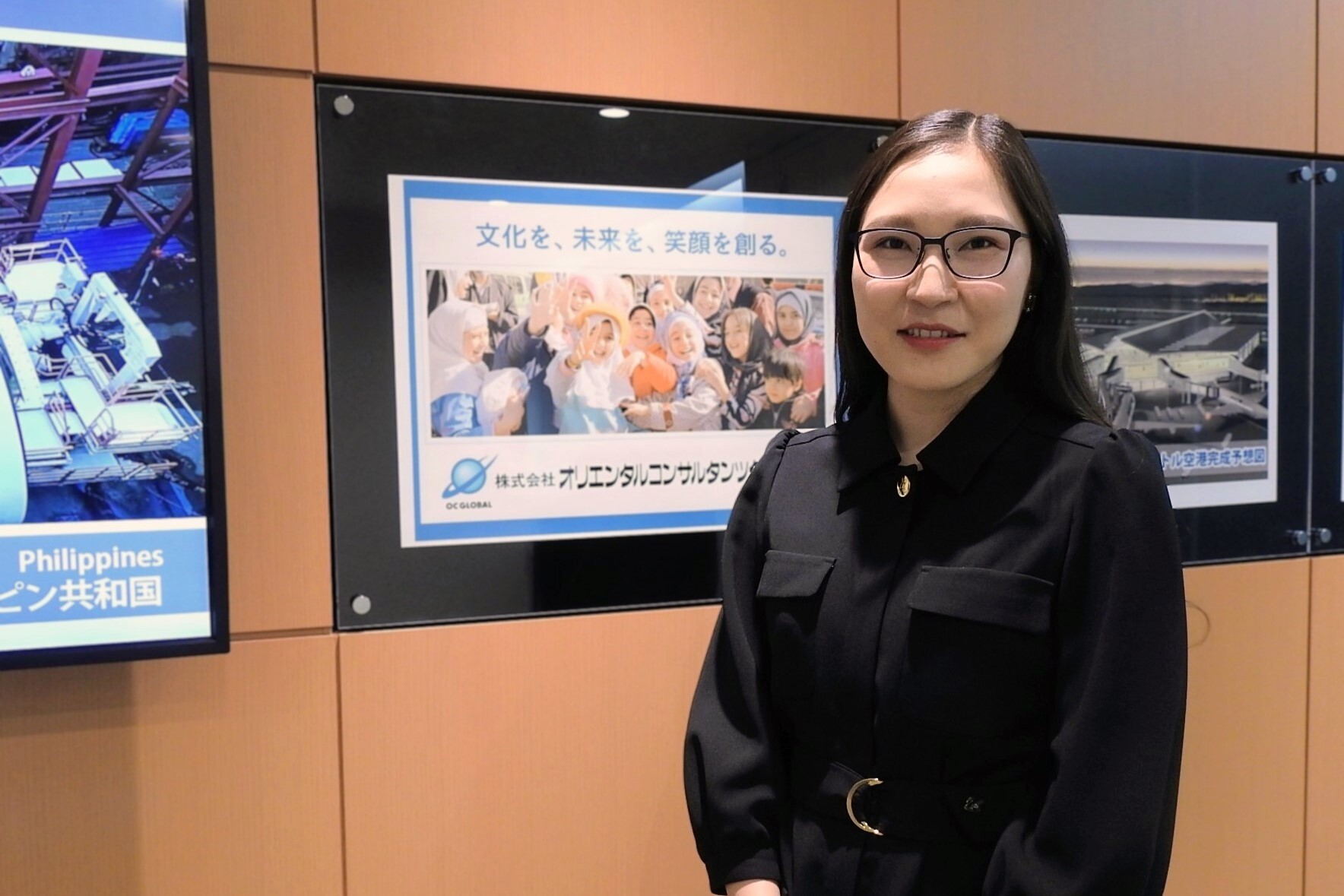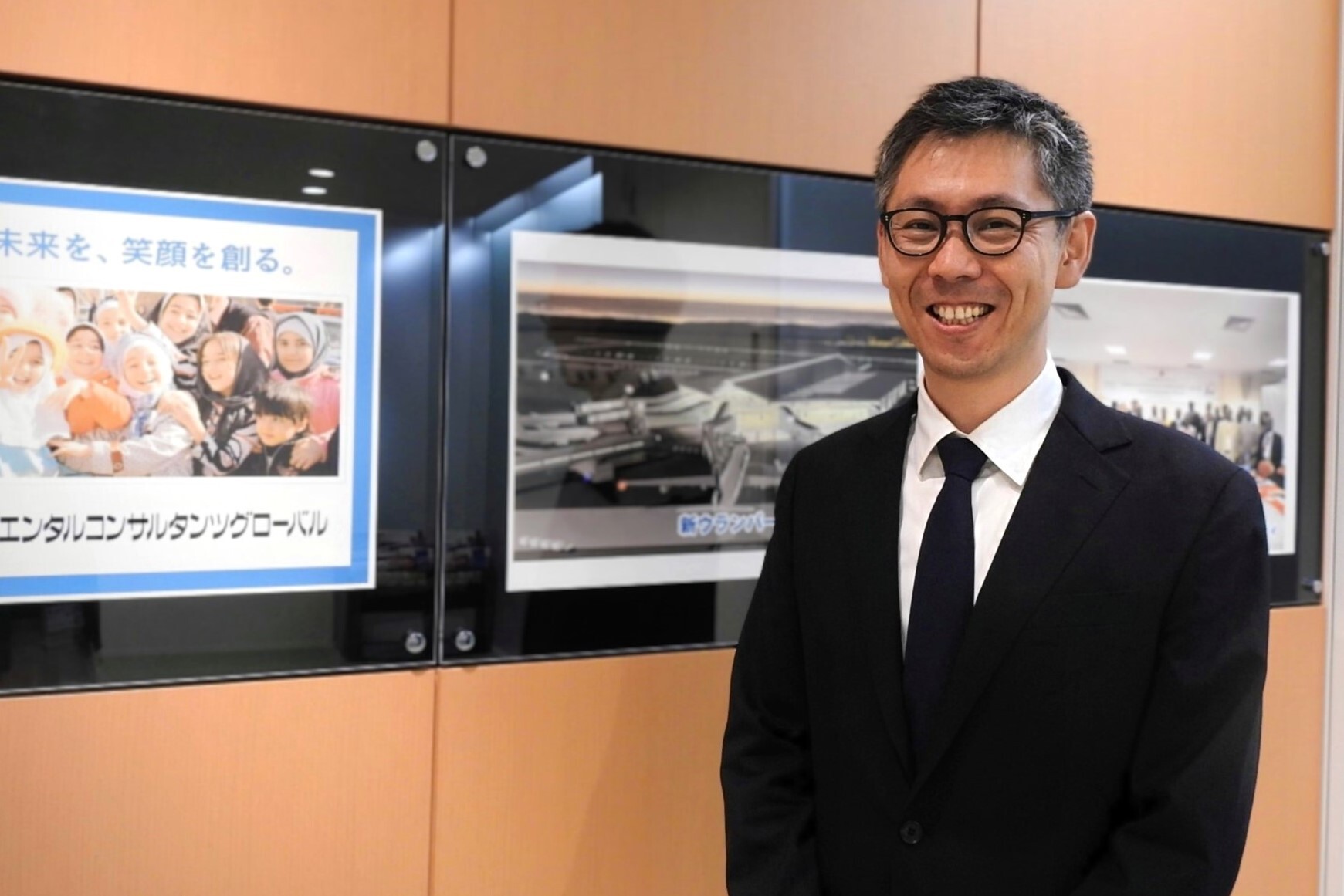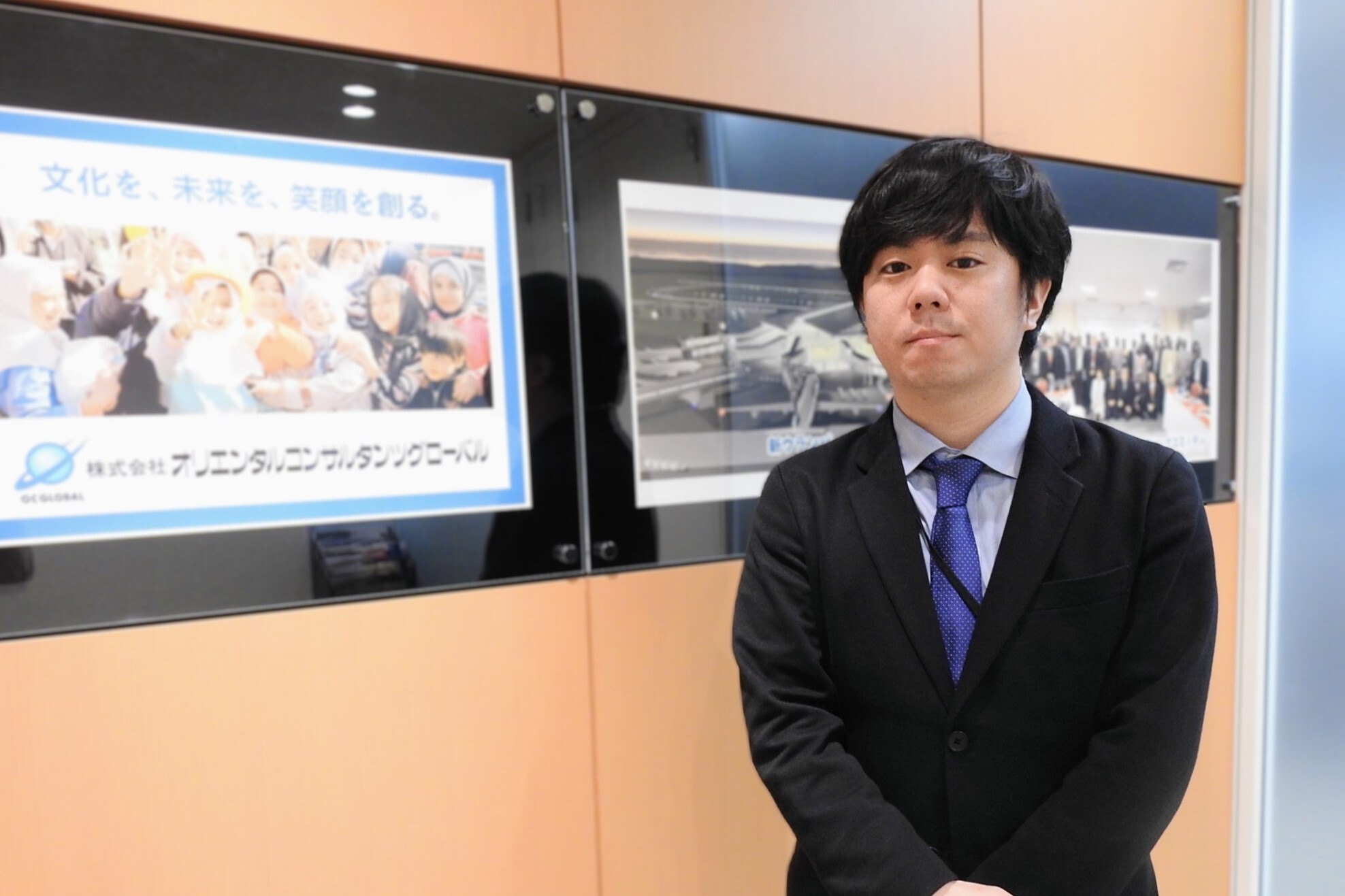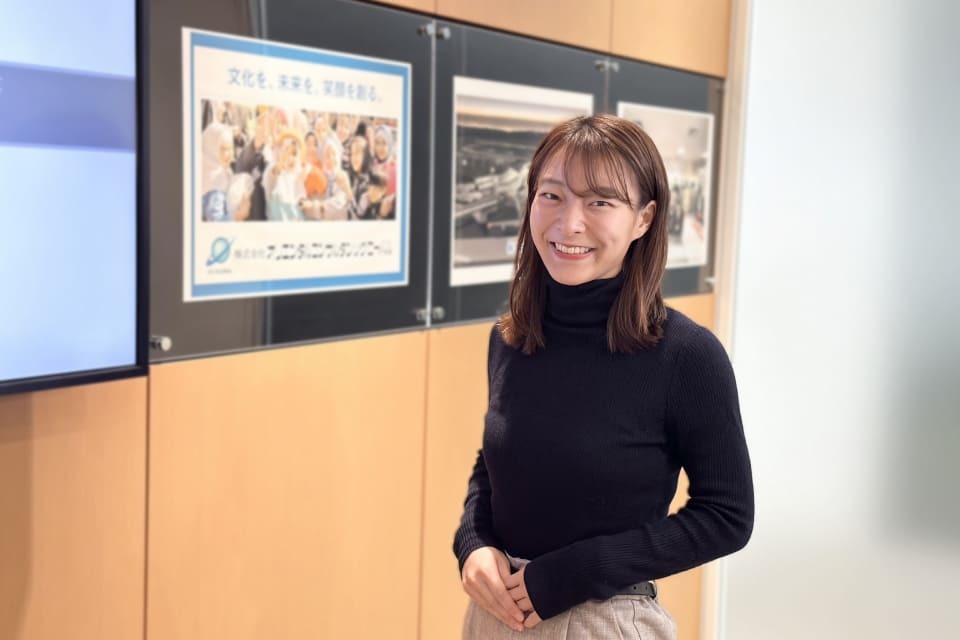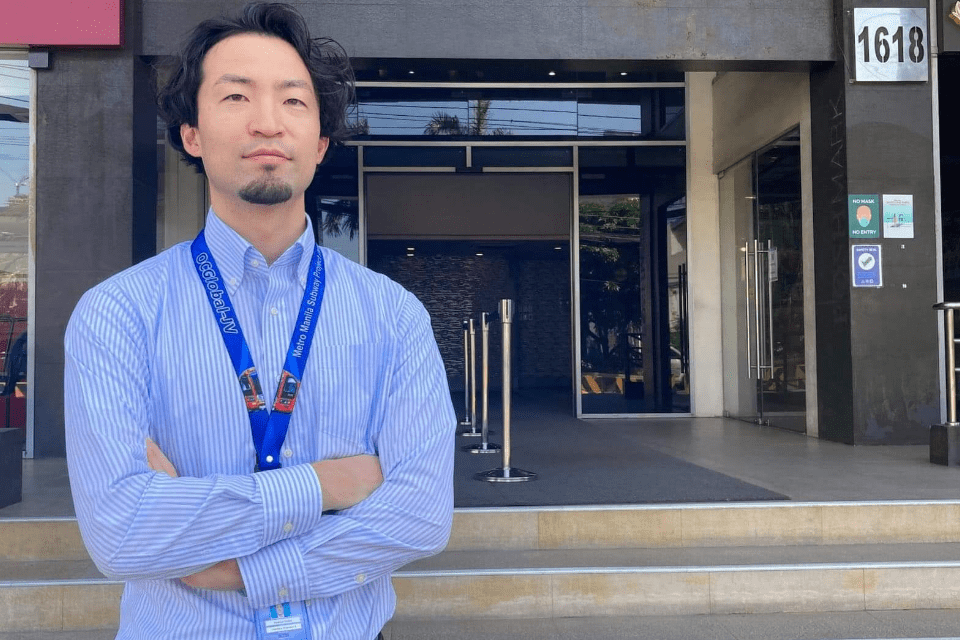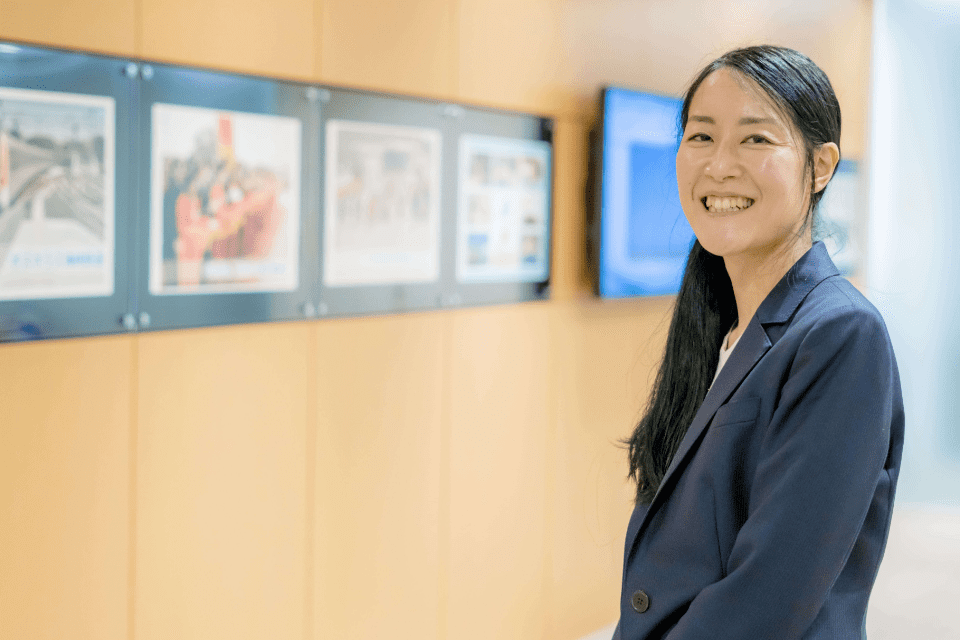海外案件を手がけるコンサルタントの仕事は“技術外交官”。関係を“技術”でつなぐ
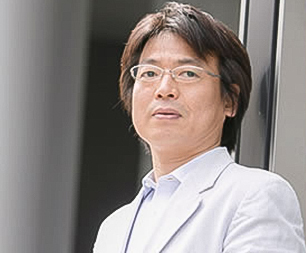
K・H さん 1995年入社
私が近年担当した案件の中で、代表的なものの一つは「太陽光を活用したクリーンエネルギー導入事業」です。これは、世界数十ヶ国に太陽光発電システムを供与するという、外務省主導による無償資金協力プロジェクトです。その対象国の中で、エジプト、グルジア、ニカラグアの三ヶ国を受注しました。ひとつであるグルジアでは、エネルギー、環境、建築、電気など9名の技術者を中心に、計画・設計から入札補助・施工監理までをワンストップでOC Globalが担当し、現在(2015年1月)、入札が終了し、これから施工を実施する段階です。
グルジアは90%以上を再生可能エネルギーで賄っている国で、そのほとんどが水力です。今後も化石燃料や原子力に頼ることなく、環境に優しい国というコンセプトを継続したいものの、水力発電は場所が限定されています。そこで、設置場所に影響されにくい太陽光発電が期待されています。グルジア初のパイロットプロジェクトとして、トビリシ空港とイリヤ国立大学の2ヶ所に、グリッドに繋がった系統連系型太陽光発電システムを設置する計画となりました。トビリシ空港はグルジアの玄関口。環境に配慮した国だというPRにもつながります。
しかし、この案件は計画や交渉が難航した案件でもありました。「お互いに納得して契約にサインしたのに、次回会った時には意見が変わっているとか…。しかし、契約だからと頭ごなしに押しつけるのではなく、粘り強く説得し、お互いの考え方の溝を埋めていくのもコンサルタントの仕事です。本件では政府だけでなく、空港をBOT(Build-Operate-Transfer)で委託された他国の運営会社との交渉も必要でした。メンテナンスの手間やトラブルが増えるのは面倒だ、と反対されたわけです。その説得には、運営会社のメリットを強調しました。先駆的な取り組みなのでPRになるし、観光客が増えれば空港の収益が向上する。だから運営会社にもプラスが大きいのだ、と。会議終了後、運営会社の上層部の方から『反対するために会議に参加したのだが、話を聞いて考えが変わった。喜んで協力しよう』と言われた時は、とても嬉しかったです。
現在、私が特に力を入れているテーマはスマートコミュニティです。経済成長が著しい世界の国々では、エネルギー需要がますます高まっています。しかし資源は限られており、かつて日本が経験し克服してきた公害などの環境問題もあります。スマートコミュニティは、環境・エネルギー・交通・通信などさまざまなインフラ技術の融合が求められます。そのため、これまで以上に幅広い知見が必要になります。
新しいアプローチとして、低炭素社会の実現を目指して、途上国の都市と日本の地方都市の都市間連携を通じたスマートコミュニティプロジェクトが進められています。現在、私は川崎市とマレーシア ペナン州の都市間連携に基づく木質系廃棄物バイオマス発電の調査に取り組んでいます。これは、現在廃棄されている木質系廃棄物を燃料にして発電し、それを売電し収益を得ることにより、政府の予算を使わずに民間投資による事業化を目指す新しいチャレンジ案件です。
問題となっている廃棄物の処理によってエネルギーを生みだすことができ、環境保全と経済発展に貢献するものです。ここでは、出来るだけ環境負荷の低い技術が求められ、川崎市で廃棄物発電事業を行っている環境技術メーカーさんと連携してプロジェクトを進めています。これを実現するためには、先方政府はもちろん、地域住民、NGO、地元廃棄物業者等と対話をしながら進めていく必要があります。海外プロジェクトを担当するコンサルタントの仕事は“技術外交官”。プロジェクトを通じて、世界の国々と日本の友好関係の構築に貢献したいと思っています。
Consultants who are engaged in overseas projects can be thought of as “technology diplomats.” We building peaceful relationships between countries of the world and Japan by the spread of technology.
A project I was in charge of recently was “The Project for Introduction of Clean Energy by Solar Electricity Generation System.” This project concerned the donating of solar generation systems to several countries in the world, and was led by the Ministry of Foreign Affairs as a grant aid project.
We were entrusted to conduct this project in Egypt, Georgia, and Nicaragua. In Georgia, nine professional engineers in energy, environment, architecture, electricity, and others conducted the work from planning and design to tender assistance and construction supervision. OC Global was in charge as a one-stop service provider.
Georgia is a country that is served by more than 90% renewable energy, most of which is hydroelectric. Striving to continue the concept of an environmentally friendly country without having to rely on fossil fuels and nuclear power in the future is becoming more challenging since hydroelectric power has limited locations. Therefore, there is a high expectation for solar panels, which are less limited in respect of finding places for installation. As the first pilot project in Georgia, a grid-connected solar power generation system is planned to be installed in two places: Tbilisi airport and the Ilya National University. Tbilisi airport is the gateway to Georgia, and thus promotes the image of a country that cares about the environment.
Nevertheless, the planning and negotiations of this project were difficult. Even though both sides would agree, opinions would change at the next meeting. However, a consultant’s job is to tenaciously persuade and answer all the doubts each side might be having. This project required negotiations not only with the local government in this matter, but also with management companies of other countries involved in the BOT (Build-Operate-Transfer) airport.
The troublesome maintenance was their sticking point, and I tackled that issue by pointing out that overall the project would benefit the operating company. As a pioneering effort, not only could this action leverage the airport’s name and bring more tourists, but also bring more revenue to the airport. Thus, it will also be advantageous for the operating company.
After the meeting, the chief of the operating company approached me and said, “I joined this meeting to oppose the project. But after hearing your presentation, I could not be happier to join and support you.” That sentence really made my day.
Now, I am specifically focusing on Smart Community projects. The more remarkable the economic growth of these countries, the stronger demand they have for energy. However, not only are resources limited, but also there are environmental issues such as pollution, which Japan has overcome. Smart Community is a field where a fusion of various infrastructure technologies is required, such as environment, energy, transportation, and communication. Therefore, a wider range of knowledge is necessary.
As a new approach, toward the realization of a low-carbon society, Smart Community projects work through the cooperation between cities of developing countries and regional cities in Japan. Now, I am working on a study of wood waste biomass power generation based on the inter-city cooperation between Kawasaki City, Japan and Penang, Malaysia. As a new and challenging project to fuel power generation by using wood chips that are currently being wasted, and by obtaining profit from electric power, we aim to commercialize the project through private investment without using the government’s budget. By succeeding in introducing energy out of waste processing, which has otherwise been a problem, it is intended to contribute to environmental conservation and economic development.
In this case, we shall be using low environmental impact technology as much as possible, by working on the project in conjunction with environmental technology manufacturers, who are doing waste power generation business in Kawasaki. In order to realize this, it is necessary for the government, the local residents, NGOs, as well as the local waste service company to keep updating and communicating with each other while proceeding with the project.
I hope the examples above show how the work of a consultant to manage overseas projects makes us technology diplomats. Through such technical projects, we contribute to fostering good relationships between Japan and the countries of the world.

